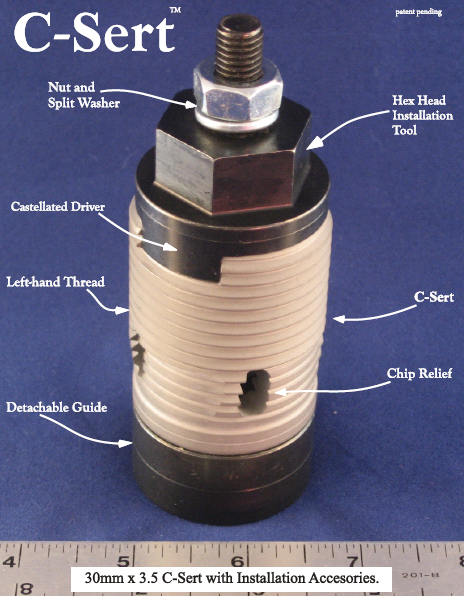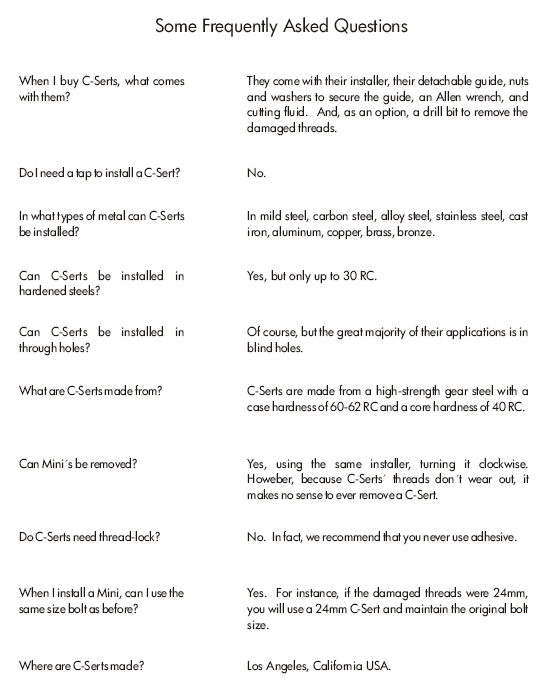C-SertInsertos Autoroscable C-SERT
High Hardness.
One thing a photo can't show you is the C-Sert's hardness. It's hard. Very hard: between 60RC and 62RC on the Rockwell C scale, as hard as a drill bit or a tap. This is many times harder than even the toughest Standard Grade 8 or Metric Grade 10.9 bolt. Such fasteners typically have a Rockwell hardness of only RC32.
This great hardness difference means that the C-Sert's internal threads cannot be damaged, no matter how many times a bolt is installed and removed from them. In the event a bolt is cross-threaded, it is the bolt's threads that will suffer damage, not the C-Sert's 60-62RC threads. This is why we can say with complete confidence that the C-Sert's internal threads are permanent.
Resistance to Vibration,
Pull-out, Back-out. First let's look at the commonest types of commercially available thread-repair products. They operate either through spring action (Re-Coil) or pins that are driven into slots in the insert (Key- Sert.) Both of these require the use of a tap. Both produce what machinists and engineers call a “mechanical fit” – a repair that depends on mechanical means, in this case spring action or locking pins.
By definition a mechanical fit is a loose fit. It leaves some space between its constituent parts. Because of this, commercially available thread-repair inserts can fail from vibration or from high torque loads, or can pull out when a fastener is removed from them, and for this reason they are tolerated but not much loved by machinists, mechanics, and engineers. In fact, in most heavy industrial applications their use is prohibited except as a temporary emergency repair.
|

